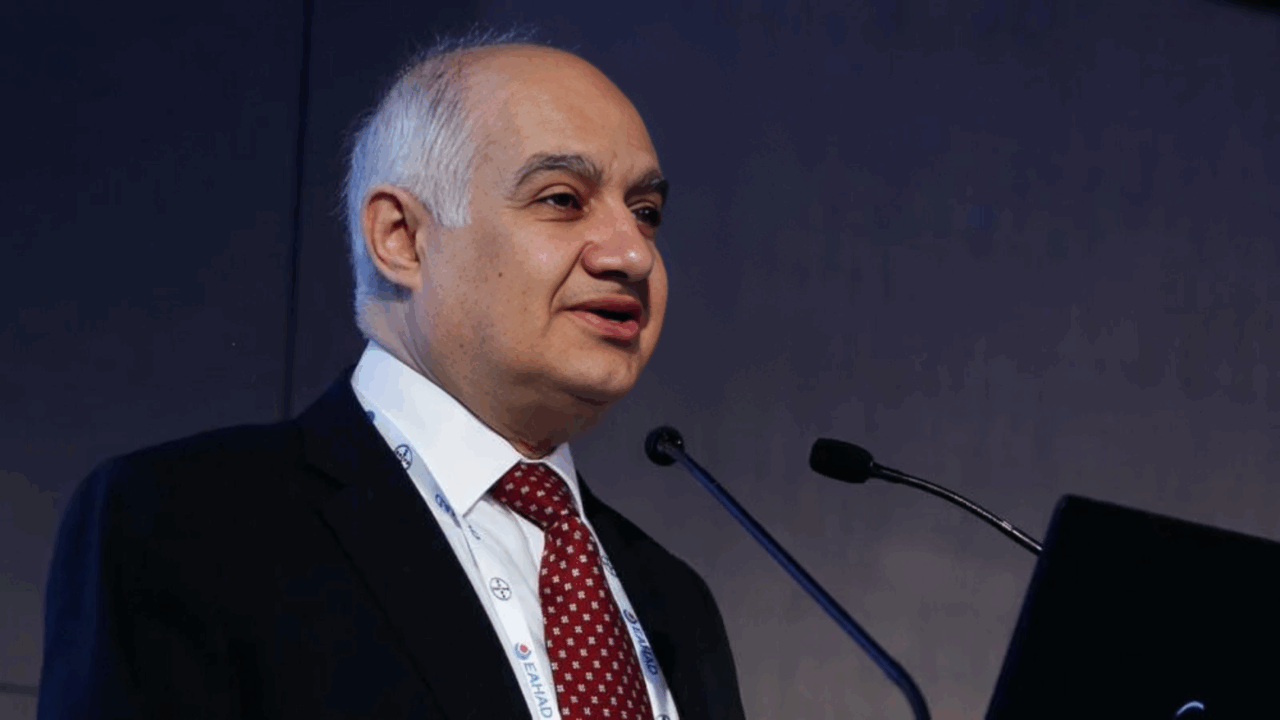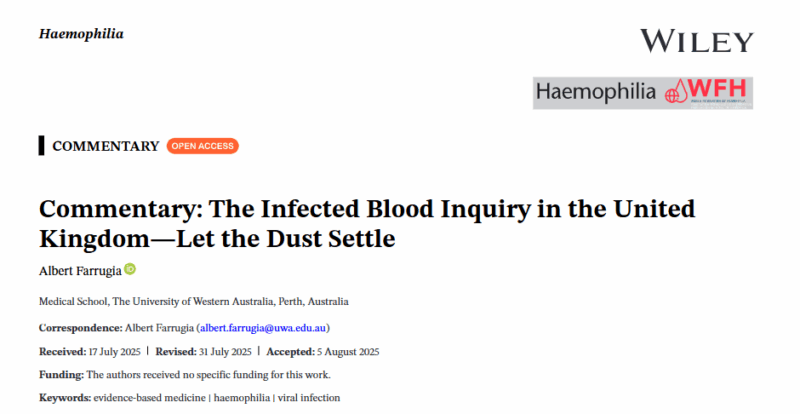
Professor Michael Makris Shares Albert Farrugia’s Commentary on the UK Infected Blood Inquiry
Michael Makris, Emeritus Professor of Haemostasis and Thrombosis at the University of Sheffield, UK. Editor-in-Chief of Research and Practice in Thrombosis and Haemostasis, shared a post on LinkedIn:
“A fascinating commentary on the UK Infected Blood Inquiry by Albert Farrugia has been published in the journal Haemophilia. He gives a unique perspective as a person with haemophilia B who was infected with hepatitis B and C through FIX concentrate, but also professionally as a plasma fractionation scientist.
He supports the compensation to affected individuals but questions several of the Inquiry’s key conclusions.
It is difficult to understand why the Inquiry did not call on Albert to give oral evidence; surely there can be few persons alive today with more insight on the matter.
The PDF of the article is freely available”
Title: The Infected Blood Inquiry in the UnitedKingdom—Let the Dust Settle
Correspondence: Albert Farrugia

You can read the full article here.
Find more on Hemostasis Today.
-
Feb 2, 2026, 17:54Danny Gaskin: Nominations are Open for the BBTS Transfusion Practitioner Special Interest Group Award 2026
-
Feb 2, 2026, 17:44Important Webinar on Care for Patients with iTTP – ISTH
-
Feb 2, 2026, 17:21Tagreed Alkaltham: Some Risks Don’t Look Like Risks in Healthcare
-
Feb 2, 2026, 17:16Sifat Jubaira: Effect of Prolonged Tourniquet Application
-
Feb 2, 2026, 17:14Vivek Mahto: Understanding Deep Vein Thrombosis – Causes, Symptoms, and Prevention
-
Feb 2, 2026, 17:08Tareq Abadl: Heparin vs Warfarin
-
Feb 2, 2026, 17:07Mary Cushman: New Research on Aspirin Use in Pregnancy and Stroke Risk in Offspring
-
Feb 2, 2026, 16:52Aravind Palraj: Young Stroke is Never Just Stroke
-
Feb 2, 2026, 16:48Seyed Mohsen Jahromi Moghadam: Antithrombotic Therapy After Transcatheter Structural Heart Interventions

